In cooperation with the NGO Star Wellness & Care Foundation, the open-air library in Bindra Park in New Delhi was enriched with literary works from the Europe Readr digital platform and with some books by Slovenian authors in physical form. The pleasant green surroundings of the library allow visitors to enjoy reading good books and daily newspapers as well as to spend time in the company of friends and meet other readers. In collaboration with the Webcom Foundation, an event dedicated to the environment and the future of living was organised for children from socially disadvantaged backgrounds.
A visit to the Bindra Park library
We paid a visit to the open-air library set in idyllic surroundings under the treetops in Bindra Park in New Delhi on 22 October. In cooperation with the NGO Star Wellness & Care Foundation, the library was enriched with literary works from the Europe Readr digital platform and with some books by Slovenian authors in physical form. Posters and bookmarks with the Europe Readr QR code are available at the library, providing effortless access to the Europe Readr platform. The pleasant green surroundings of the library allow visitors to enjoy reading good books and, through the literary works from the Europe Readr platform, they can learn about social and environmental challenges and the future of living from the European perspective.
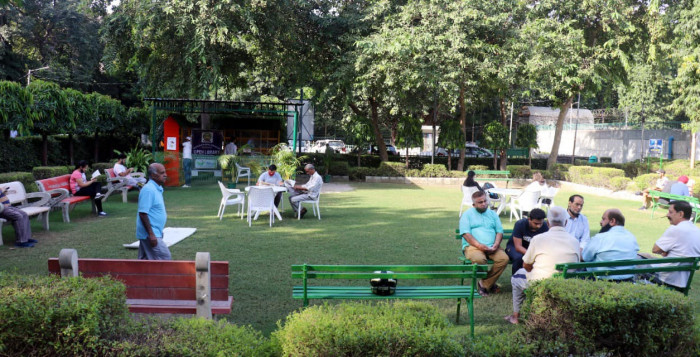
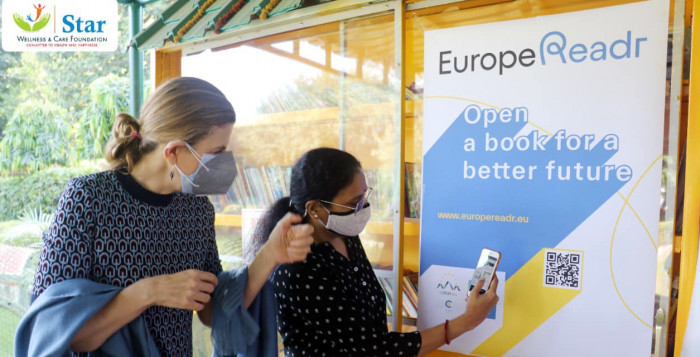
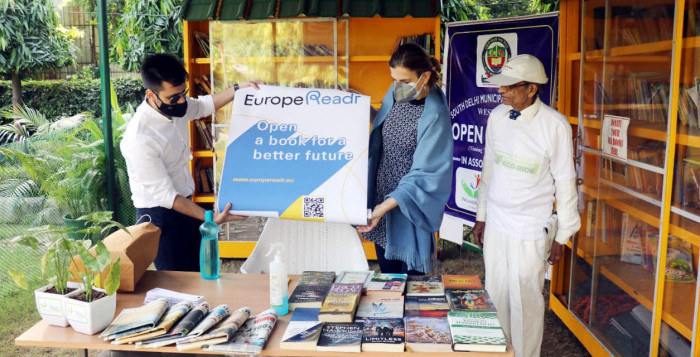
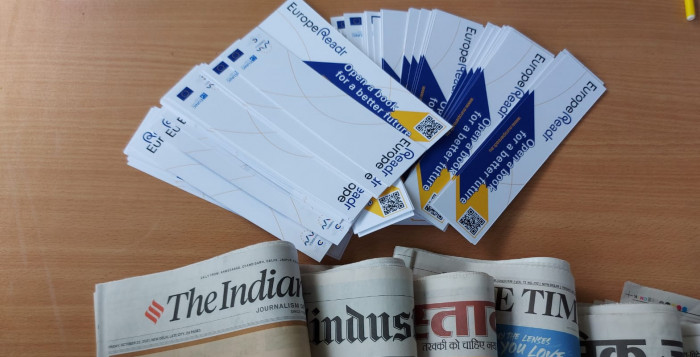
Children’s workshop
In collaboration with an NGO – the Webcom Foundation – an event dedicated to the environment and the future of living was held on 3 November for children from socially disadvantaged backgrounds. Both topics were introduced to the children through listening to stories and creating useful items from waste materials.
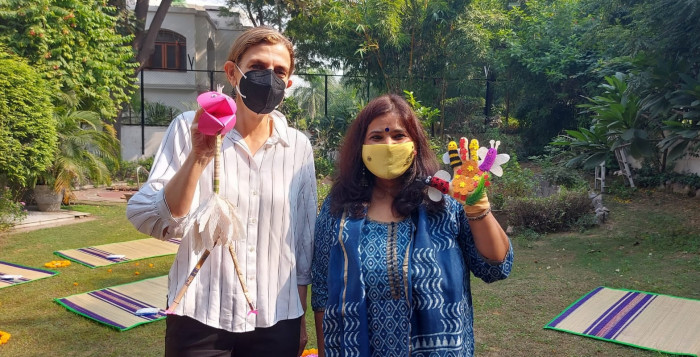
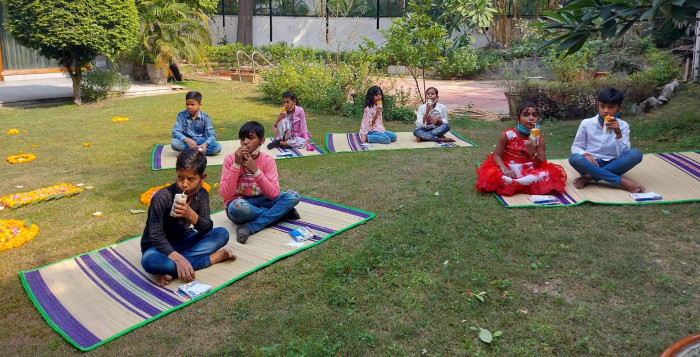
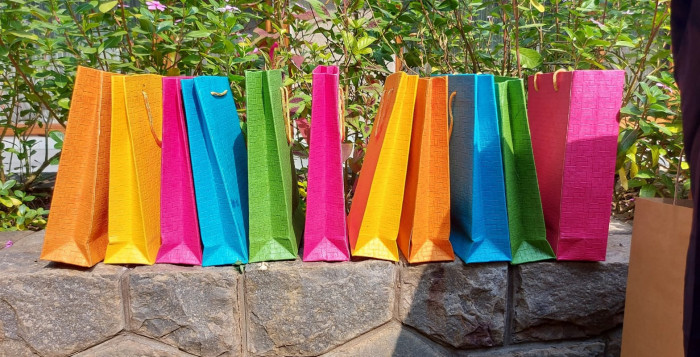
In the workshop, the storyteller Seema Wahi Mukherjee used words and pictures to present and familiarise the children with issues around the protection of their local environment, the importance of clean water, and to think about the future of living. In her stories, she focused on locations the children were familiar and able to identify with, and on stories which not only sparked their imagination, but also directed their attention towards their long-term duty of preserving the natural environment. The children also had an opportunity to browse through books and picture books in Hindi and English that spur thinking on this topic and call for greater social responsibility.
The practical part of the workshop was dedicated to creating items from waste materials – cardboard, newspaper, plastic bottles, etc. In the future, the items crafted will remind the children that it is possible to create something beautiful and useful from waste materials.
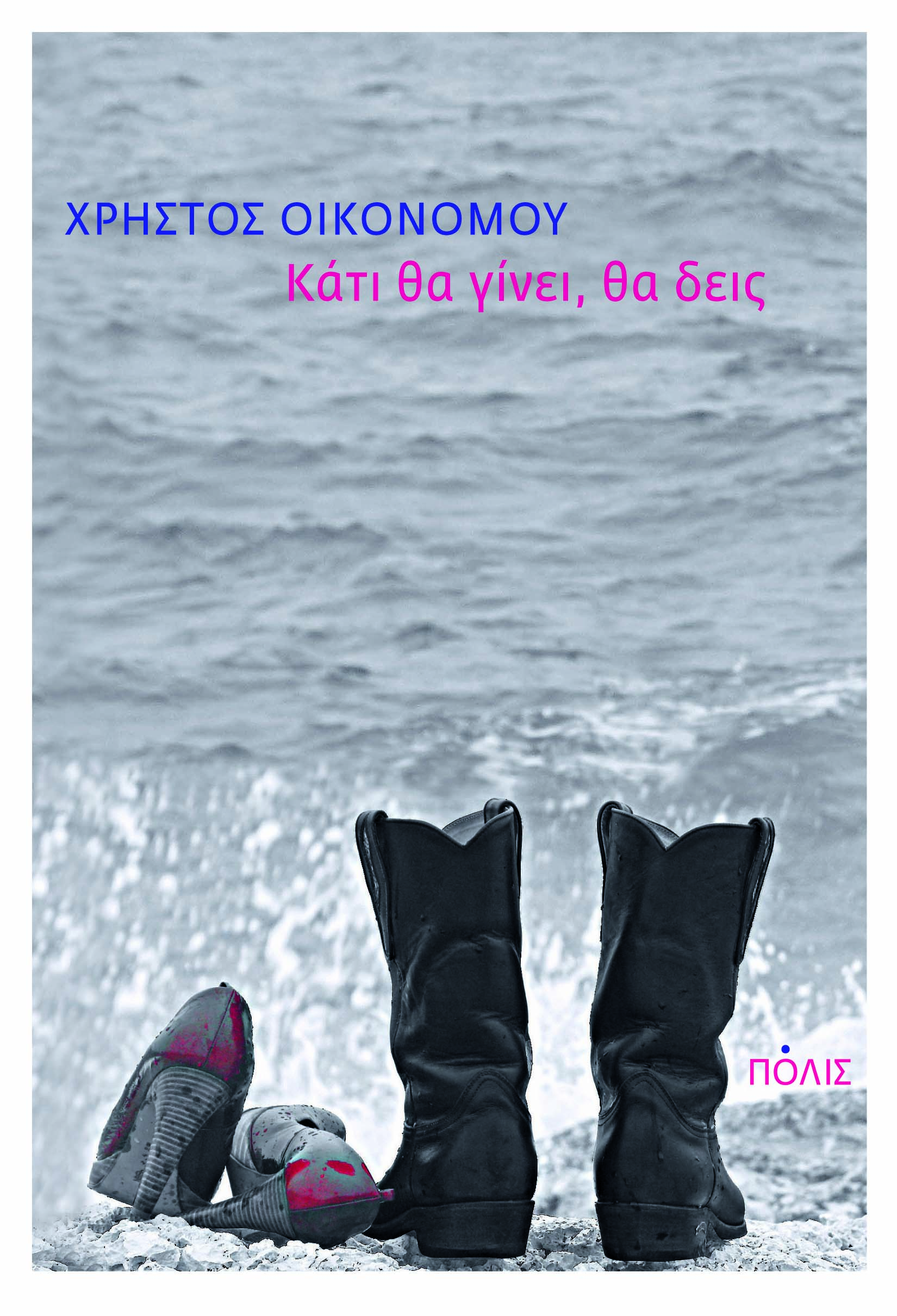
Finally, there’s a book that drags the Greek reader out of the satiate petty bourgeois frame or the lifestyle craze and throws him deep into the working class slums.
